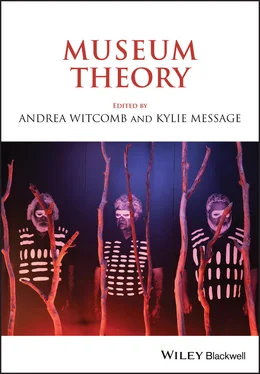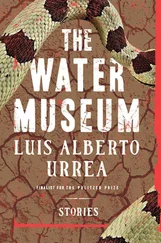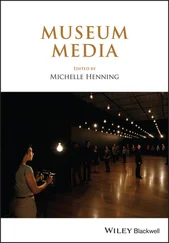Professor Sharon Macdonald
Alexander van Humboldt Professor in Social Anthropology
Institute for European Ethnology
Humboldt University of Berlin
Berlin, Germany
Helen Rees Leahyis Professor Emerita of Museology at the University of Manchester, where, between 2002 and 2017 she directed the Centre for Museology. Previously, Helen held a variety of senior posts in UK museums, including the Design Museum, Eureka! The Museum for Children, and the National Art Collections Fund. She has also worked as an independent consultant and curator, and has organized numerous exhibitions of art and design. She has published widely on practices of individual and institutional collecting, in both historical and contemporary contexts, including issues of patronage, display and interpretation. Her Museum Bodies: The Politics and Practices of Visiting and Viewing was published by Ashgate in 2012.
Professor Emerita Helen Rees Leahy
Centre for Museology
School of Arts, Languages and Cultures
University of Manchester
Manchester, UK
Ien Ang,University of Western Sydney, Australa
Janice Baker,Curtin University, Australia
Amelia Barikin,University of Queensland, Australia
Jennifer Barrett,University of Sydney, Australia
Tony Bennett,University of Western Sydney, Australia
Lyndell Brown,University of Melbourne, Australia
Shelley Ruth Butler,McGill University, Canada
Fiona Cameron,University of Western Sydney, Australia
Rebecca Carland,Museum Victoria, Australia
Peter Dahlgren,Lund University, Sweden
Liza Dale?Hallett,Museum Victoria, Australia
Sandra H. Dudley,University of Leicester, UK
Peg Fraser,Museum Victoria, Australia
James B. Gardner,US National Archives, USA
Haidy Geismar,University College London, UK
Charles Green,University of Melbourne, Australia
Joke Hermes,Inholland University, The Netherlands
Kevin Hetherington,Open University, UK
Jim McGuigan,Loughborough University, UK
Scott McQuire,University of Melbourne, Australia
Kylie Message,Australian National University, Australia
Toby Miller,Cardiff University, UK, and Murdoch University, Australia
Howard Morphy,Australian National University, Australia
Nikos Papastergiadis,University of Melbourne, Australia
Elsa Peralta,University of Lisbon, Portugal
Natalia Radywyl,Fjord, New York
Philipp Schorch,Deakin University, Australia, and Ludwig-Maximilians-University Munich, Germany
Laurajane Smith,Australian National University, Australia
Russell Staiff,University of Western Sydney, Australia
Fredrik Svanberg,National Historical Museums, Sweden
Sheila Watson,University of Leicester, UK
Andrea Witcomb,Deakin University, Australia
Editing this volume has been an enormously rewarding experience. We wish to thank all those who made it possible, particularly our friend Chris Healy, who first brought us into this project. We would also like to thank Sharon Macdonald and Helen Rees Leahy, who conceptualized the series and have overseen its develop? ment. As our guiding editor, Sharon was exacting but enormously supportive, and we thank her for it. We also warmly acknowledge our contributors–colleagues inside and outside museums without whom this volume would not have taken shape. Thank you for staying the course of the project–all those emails backward and forward, the drafting and redrafting that went into the editing process, and your faith that the publication would eventually emerge. Finally but not least, we wish to thank Gill Whitley, the project manager working with Wiley, who went above and beyond her duty of care in supporting us as editors, running around chasing copyright, and keeping us to deadlines or managing requests for exten? sions when we needed them. We are also no less grateful for the patience, careful reading, and extraordinary care taken by our copy?editor, Jacqueline Harvey
EDITORS’ PREFACE TO MUSEUM THEORY AND THE INTERNATIONAL HANDBOOKS IN MUSEUM STUDIES
Museum Theory
As general editors of The International Handbooks in Museum Studies, we–Sharon Macdonald and Helen Rees Leahy–are delighted that Museum Theory is now appearing in paperback, as a self-standing volume. So too are the other volumes, which is testament to the strength of these volumes individually, as well as collectively, and to the importance of the issues that they each address. Museum Theory clearly concerns a fundamental area of museum studies. Although fundamental, however, there is not an established consensus on precisely what might be covered under the label ‘museum theory’. One reason for this is the relative recency of museum studies as a field. A second reason is that museum studies draws on a wide range of disciplines, each themselves renewing their toolkits in various ways, resulting in new impulses for museum theorising too. In addition, and perhaps of most significance, is the fact of change–and calls for more change–within museums themselves as they seek to address wider social and cultural transformations. This inspires a search for fresh theorising to understand and shape new developments. At the same time, as museums can be seen as themselves ‘theorisers’, it helps to propel new theorizing.
As such, the editors of Museum Theory , Andrea Witcomb and Kylie Message, in consultation with us as general editors, faced a task of how to achieve a volume that would cover approaches that have become central to the theorising of museums, while also being sure to include as much as possible of the new directions and ideas that have been emerging in recent years. That this was achieved so well is evident from the resulting volume. The range of topics included and the ways in which they are tackled, provide a sound and also cutting-edge coverage of museum theory.
The International Handbooks in Museum Studies
Collectively, The International Handbooks in Museum Studies include over a hundred original, state-of-the-art chapters on museums and museum studies. As such, they are the most comprehensive review to date of the lively and expanding field of museum studies. Written by a wide range of scholars and practitioners–newer voices as well as those already widely esteemed– The International Handbooks provide not only extensive coverage of key topics and debates in the museum field, but also make a productive contribution to emerging debates and areas, as well as to suggest how museum studies–and museums–might develop in the future.
The number of excellent contributors able and willing to write on museum topics is itself testimony to the state of the field, as was recognition by the publishers that the field warranted such a substantial work. Bringing together such a range and quantity of new writing about museums was accomplished through the deep knowledge, extensive networks, and sheer labour of the volume editors–Andrea Witcomb and Kylie Message, Museum Theory ; Conal McCarthy, Museum Practice ; Michelle Henning, Museum Media ; and Annie E. Coombes and Ruth B. Phillips, Museum Transformations . All enthusiastically took up the mandate to go out and recruit those they thought would be best able to write useful and timely essays on what they defined as the most important topics within their area of remit. Their brief was to look widely for potential contributors, including unfamiliar, as well as familiar, names. We–and they–were especially interested in perspectives from people whose voices have not always been heard within the international museum studies conversation thus far. This breadth is also a feature of the expanded and expanding field itself, as we explain further below.
Читать дальше












